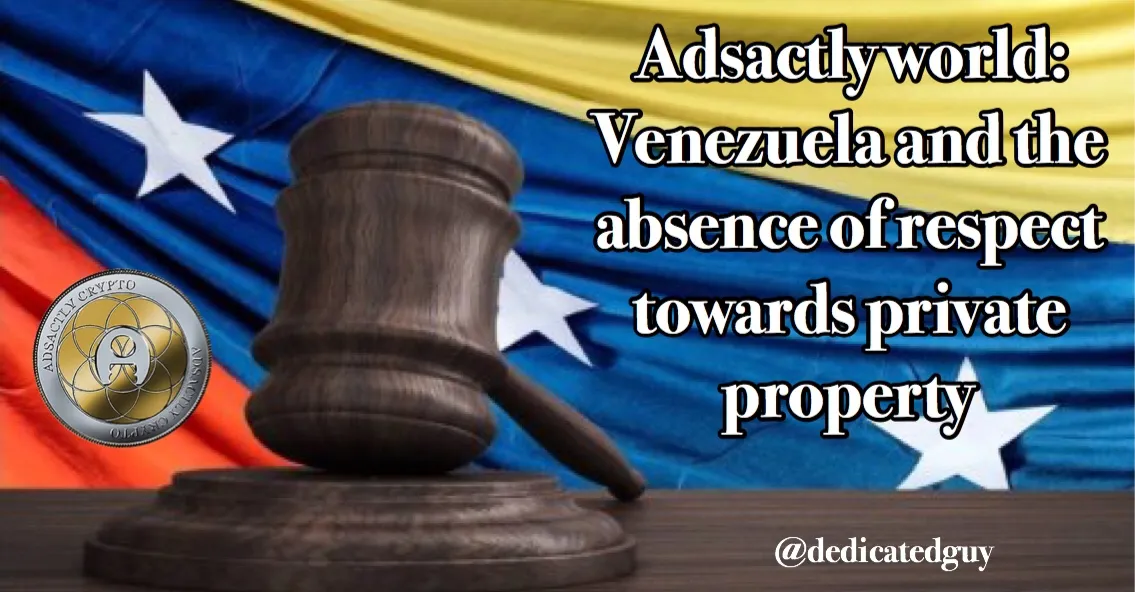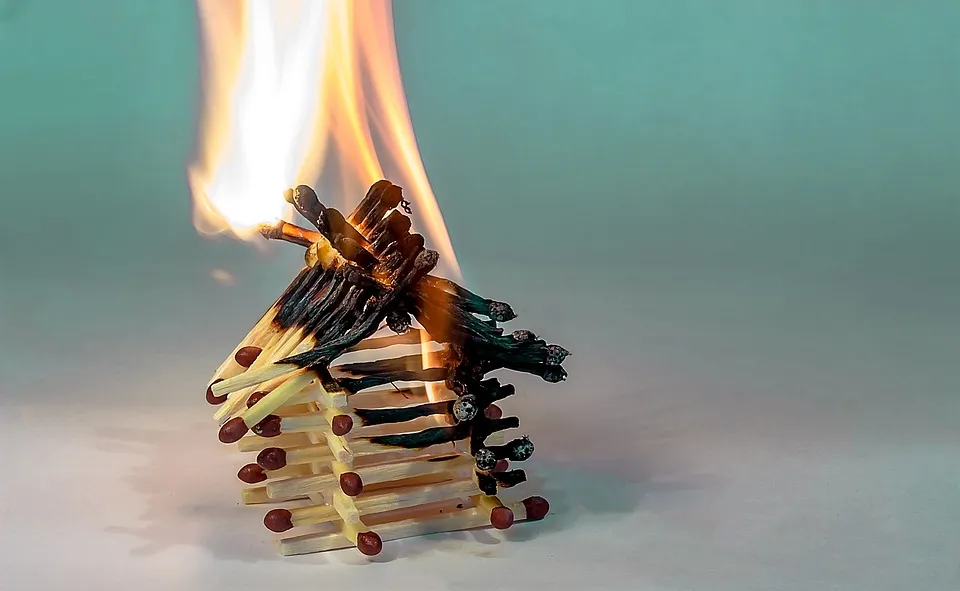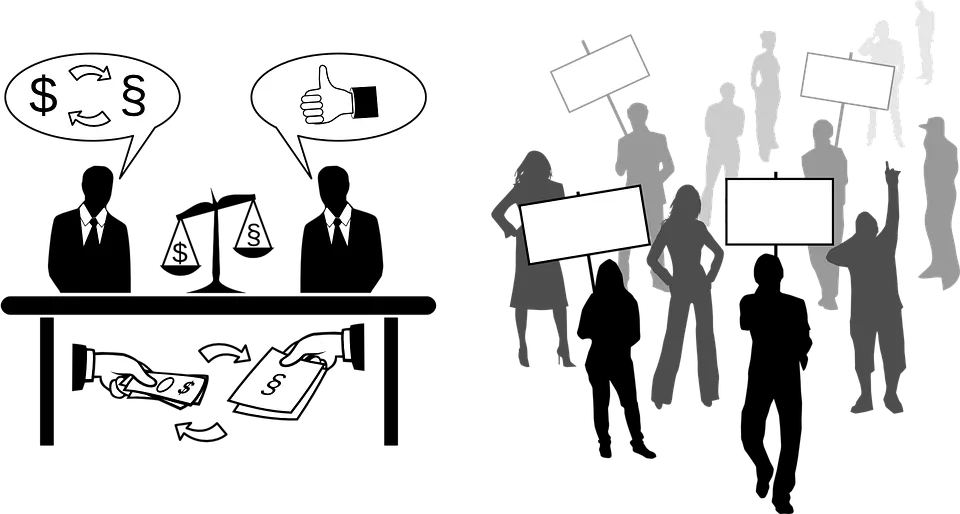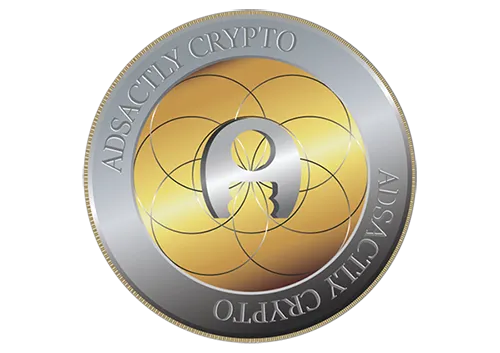

Introduction
It has been covered in previous articles how Venezuela’s transformation into the current disaster slowly began to take form, beginning with how the population’s misconception about democracy ultimately caused its very destruction.
Little by little, certain totalitarian measures, disguised as something good that could help people, started to be applied with a lot of popular support, but they were all designed to undermine the people’s freedom in every sense, and transfer even more power and control to a political party that from the beginning, has only cared about their own interests, being more that willing to destroy an entire country as long as they are the ones governing it.
Today, we are going to explore how and why was private property attacked in Venezuela.

Understanding nationalization and expropriation
Nationalizing companies means that the largest company in a certain industry, or the entire industry, goes into the hands of the government. When they nationalize an entire industry, the government keeps the monopoly of said industry. No person or entity can create a company that participate in said sector and citizens have only one option, the one offered by the government. The nationalization is done together with expropriation policies that work in a similar way and share the same goal, that is, to give the political party direct access to the money of these companies.

Expropriating private companies means that after a certain moment a company that was successfully built by a single individual or group of people thanks to their effort, vision and the employees, will now be operated by the government. Understanding this is very important, because governments try to convince people that the company is nationalized or expropriated so they can "return it to the people", but people and government are not the same. The government and the people are completely different things by definition. What politicians actually want when they talk about nationalizing and expropriating is to make it easier for them to steal money.
In the typical state of corruption, a politician wants money and the business owner has it, so the politician is forced to deal with the businessman who in exchange for his money and resources, wants favors and a privileged treatment, but when a company is nationalized they remove the businessman from the picture, and are then able to directly manage the company’s resources. They no longer need to deal with third parties, and now they are free to take what they want when they want it.
But this doesn’t reduce corruption, everything remains as corrupt as it was before the nationalization, if not worse, there can be the case with companies that were very important and appreciated because they created jobs for the people and provided a valuable service, but after being nationalized are transformed into inoperative entities, sometimes even being unable to continue with their activities due to their inefficiency.

What happened in Venezuela?
Chávez nationalized multiple companies and took full and direct control of PDVSA, which was already nationalized since 1975, but despite being a public company, it operated outside the government with total independence, and the country's budget wasn’t conditioned by PDVSA's revenues. So when Chávez took control over PDVSA, for practical purposes it was the same as nationalizing it.

The first thing that happened was that PDVSA board of directors was replaced by people who had no proper knowledge about the oil industry, but had strong ties with the government. They wanted to control PDVSA because it was and still is one of the most important oil companies in the world. They knew that without controlling PDVSA’s money, it would be very difficult to sustain their future actions. The new slogan was "Now PDVSA belongs to everyone", which actually meant they finally were able to have direct access to thousands of millions of dollars coming from the oil industry.
They also nationalized other "strategic" industries to have direct access to their resources. People were told that it was necessary to nationalize private companies because their rich owners were thieves who took advantage of the people, nationalizing companies would then, guaranteed that no Venezuelan would be without access to the most important services. But their real intention wasn’t to give anything back to anyone, it was to get rid of the businessmen and satisfy their need for more control.
No nationalization brought improvements to people's lives. Before the electricity was nationalized, no one suffered from power outages. Private electricity providers worked very well. Everyone had electricity. Some people, the poorest, could not pay for electricity and stole it from the street, and those who paid for the service were guaranteed to have electricity. When this industry was nationalized, things changed, and the only guarantee was that of suffering from power outages on a constant basis.

When these anti freedom measures ended up ruining the private entrepreneurship, and the food companies stopped producing their products, the government accused them of hoarders, and expropriated those companies, which gave them the capacity to produce food for a short period of time that they could sell in their own government owned grocery stores to stop shortages, but this was obviously an unsustainable situation.
The nationalized companies ended up collapsing, and for anyone going to a grocery store in Venezuela to buy what people normally buy for their homes in any normal country, it would be close to impossible to find every product that is needed. Even if some people have the money, there aren’t available products. Sometimes there is no meat to eat, and this can last for months. A few years ago there was the famous toilet paper shortage that was reported by several news websites. Finding available milk is not something that happens everyday, the same can be said about pretty much any basic food. The shortage is widespread and permanent. That is what happens when private companies are attacked and the free market is destroyed.

Conclusion
Everything the government nationalized ended badly, not only because they were corrupted people who didn’t know how to efficiently manage a business, it was also because nationalizing the companies turns them into an entity that no one takes good care of, there is not a person that benefits from the company's optimal functioning, they are more focused on stealing the company’s resources and then go and do the same to the next one, and therefore people aren’t bothered with doing a proper job planning the finances, the production and other tasks typical of every business. This destroys the structure of a country and in Venezuela, right now, most of the products are imported because local production is practically non existent.

Thus, the nationalization of companies is done with the goal of taking over more resources, to dispose of people's money beyond taxes, and with the new resources coming from the nationalizations, they can do whatever they want. From bribing people and financing massive political campaigns, to even helping other allied politicians with their own campaigns in their own countries.
All of that is not the stated intention of course, they say to the people that nationalizations are happening for their own benefit. To guarantee services to the poorest, or to avoid excessive prices. In the end, what happens is that the government takes away money from companies like a vampire sucks the blood of a victim. The companies die, the country is left without good services, and the totalitarian government increases its power.
Images sources
Authored by @dedicatedguy
Click on the coin to join our Discord Chat

Witness proposal is here:
Go To Steem Witness Page
In the bottom of the page type: adsactly-witness and press vote.

Use small letters and no "@" sign. Or, click here to vote directly!
Thank you!